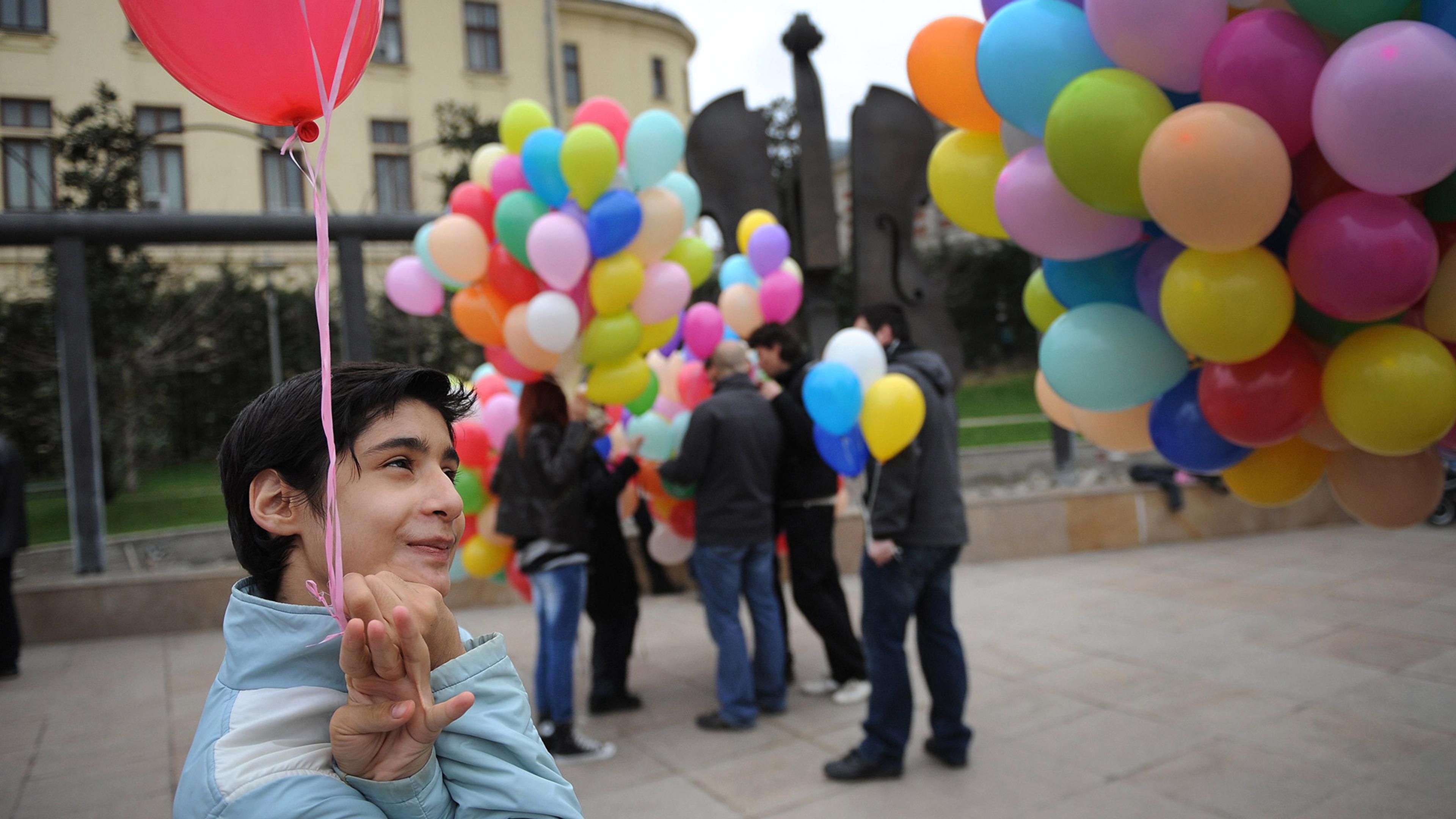The term ‘neurodiversity’ was first introduced by Judy Singer, an autistic sociologist, in the late 1990s. It refers to the idea that there are innate differences in how people’s brains function, which affect how they engage with the world. Today, many people identify as neurodivergent – a related term that means that one’s brain differs from what is neurologically typical. These often include people who have formal diagnoses such as autism spectrum disorder (ASD) and attention-deficit/hyperactivity disorder (ADHD), as well as those who suspect they may qualify for a diagnosis.
At its core, the concept of neurodiversity implies that differences in how these individuals act, think or feel are natural and biological. And while the umbrella of ‘neurodivergent’ applies to people with various diagnoses, it also suggests that a common thread nonetheless binds these individuals together.
These ways of viewing neurodivergent people resonate with a long-studied concept in psychology: essentialism. Essentialism refers to the perception that members of the same category share an innate, unchangeable essence. People can have essentialist beliefs about things like animals or plants, but also social categories, such as genders or races. One way of assessing someone’s essentialist beliefs is to look at the extent to which they think that a category came about naturally and that the characteristics of the category’s members have not changed. For example, you may believe that all cheetahs are born with spots – and always have been. A second way of assessing essentialist beliefs is to look at the extent to which someone thinks members of a category are homogeneous. For example, you may believe that there is a common essence that binds all cheetahs together, and that knowing something about a single cheetah (eg, it is fast) will allow you to make inferences about other cheetahs (eg, all cheetahs are fast).
While essentialist beliefs are common, they often do not accurately represent reality. For example, discrete racial categories, which are socially constructed, are often falsely understood to have a biological basis. Would it be safe to say that ‘shared essences’ exist for a category like ‘neurodivergent’? Interestingly, some research suggests that the features of conditions such as ASD and ADHD are overlapping, rather than separate. This might suggest there is some underlying biological component that is shared among these distinct diagnoses. At the same time, it is well established that, although there are strong neurological and genetic components to some disorders, many conditions arise due to the joint influence of a person’s physiology and their environment. Future research will help elucidate the extent to which a common physiology underlies the experience of diverse disorders.
Whatever the evidence indicates, people may still hold essentialist beliefs about neurodivergent individuals that extend beyond biology. And the vast majority of psychological research on essentialism suggests that when such beliefs are applied to social groups (eg, genders, races), they are associated with pernicious outcomes, such as increased stereotyping, prejudice and discrimination. In one study, for example, researchers found that activating essentialist beliefs about race led white participants to report increased prejudice towards Black people. This was explained by white participants’ higher endorsement of existing social hierarchies. That is, the idea that race is ‘natural’ seemed to lead participants to infer that existing social hierarchies reflect real differences between groups, increasing prejudice.
However, there is evidence that holding essentialist beliefs about one’s own identity can, in some situations, be associated with more positive outcomes for people who identify as part of a marginalised or minoritised group. For example, in one study with adolescents, ethnic minority group members in the Netherlands who identified strongly with their ethnic identity (eg, Turkish), and had essentialist beliefs about it, were also more likely to endorse multicultural beliefs that stressed the importance of honouring distinct cultures and heritages. More broadly, strategic use of essentialist beliefs has helped garner support for the feminist, gay rights and multicultural movements.
Based on this evidence, it is reasonable to think that the potential benefits of essentialism could extend to neurodivergent people. Being different from a majority of people can be challenging, and people who identify as neurodivergent often experience bullying and discrimination. However, the concept of neurodivergence is meant to normalise being different while also uniting individuals with a range of experiences and disorders. Indeed, one of us identifies as neurodivergent and feels that using this label is another way to say: ‘I acknowledge I am not the same as you (ie, neurotypical people), and that is not a bad thing.’
This experience inspired us to conduct a research study in which we examined whether people who identify as neurodivergent essentialise this aspect of their identity, and the implications of doing so. Specifically, we wondered if having essentialist beliefs about neurodivergent people could serve a protective function for these individuals, who might also experience stigma, discrimination or prejudice based on their conditions.
Essentialist beliefs, again, hold that a category is natural and that members of a category are alike. We reasoned that having these beliefs may validate neurodivergent individuals’ sense of self, while making them feel connected to others within the neurodivergent community. This could in turn promote self-efficacy – one’s perceived ability to surmount obstacles and accomplish goals. We expected the relationship between essentialist beliefs and self-efficacy to be even stronger among people who identified more as neurodivergent.
Our hypothesising was partly informed by the neurodivergent co-author’s personal experiences. People were always very direct with her when it came to what they thought she could and couldn’t do. For instance, one of her teachers was annoyed by having to accommodate her ADHD and often belittled her for it, once saying that she’d amount to a failure in life. But she identified as neurodivergent before she could identify as a failure. Knowing what made her different, and being able to work with her disorder, empowered her to succeed despite others thinking she wouldn’t.
Those who embraced essentialist beliefs about neurodivergent people also reported higher levels of self-efficacy
To test our predictions, we recruited individuals from online communities on Facebook and Reddit, such as the Invisible Disability Support Group on Facebook and the r/neurodiversity subreddit. Our final sample consisted of 316 people who identified with a range of conditions, including autism, ADHD, dyslexia and Tourette syndrome. Our participants were also fairly diverse in terms of race, age and gender. After participants indicated that they identified as neurodivergent, they answered a series of questionnaires, rating their level of agreement with various statements.
First, the participants indicated the degree to which they held essentialist beliefs about neurodivergent people. These included beliefs about both the naturalness of this category, such as how unchanging they believed it to be, and its homogeneity, such as how much they perceived underlying similarities in neurodivergent people’s experiences. For example, to measure an aspect of the naturalness dimension, participants were asked how much they agreed with statements such as ‘Neurodivergent people have always existed, and their characteristics have not changed much throughout history.’
The study participants also indicated how strongly they personally identified with being neurodivergent. And, importantly, they completed measures of their sense of self-efficacy, rating their agreement with statements such as ‘I believe I can succeed at most any endeavour to which I set my mind’, and ‘If I am in trouble I can usually think of a solution.’
As we predicted, those who embraced essentialist beliefs about neurodivergent people also reported higher levels of self-efficacy: people who believed that the neurodivergent category is natural, and that neurodivergent individuals share similar traits, were more likely to say that they themselves could achieve and overcome obstacles. This association was even stronger among people who identified strongly as neurodivergent.
These results are striking. In contrast to the large body of research showing that essentialist beliefs about social groups are typically associated with negative outcomes, our results showed that holding essentialist beliefs about one’s own group was related to something positive.
It is important to note that our results are correlational: we do not know yet whether having essentialist beliefs leads to higher self-efficacy, or if neurodivergent people who have higher self-efficacy tend to develop stronger essentialist beliefs. However, many neurodivergent individuals may struggle with self-efficacy due to internal factors like impaired executive functioning (which is needed for organisation and planning) or external factors, such as a lack of social or institutional support. Further, the research literature suggests that essentialist beliefs can function as a tool for empowerment when used by members of marginalised groups.
In our own research, we also turned to open-ended responses for insight. Several participants elaborated on positive aspects of being neurodivergent, mentioning social benefits such as being more empathetic towards others due to their life experiences, as well as different ways of thinking, such as being more creative and artistic. For these participants, their neurodivergent identity seemed to precede the benefits. We suspect, then, that holding essentialist beliefs could foster the development of higher self-efficacy (rather than the other way around), but future experimental work should test this directly.
It is also important to acknowledge the psychological research that finds that even essentialist beliefs about one’s own group are sometimes associated with negative outcomes. For instance, one study found that when women viewed gender as being biologically determined, they were more likely to endorse stereotypically feminine traits, even if those were negative. Some theory also suggests that, in certain contexts, marginalised communities might endorse essentialist beliefs to reduce the cognitive dissonance elicited by living in societies in which they are oppressed (eg, ‘We must be different, because this is the way things are’).
Taken together, research suggests that the consequences of holding essentialist beliefs are complex. Their effects seem to be far from one-dimensional, and they may have the potential to both sow the seeds of prejudice and injustice and, in certain contexts, serve as a wellspring of empowerment and validation. With further investigation, and input from people in marginalised communities, a more holistic and nuanced understanding of how essentialism shapes people’s views of themselves and others is certain to emerge.








